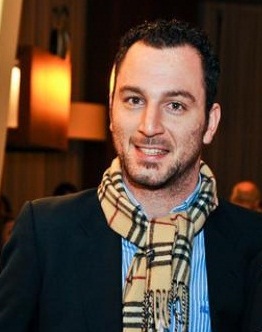Detection and Mitigation of Cyber-Attacks Using Game Theory and Learning

Speaker: Kyriakos G. Vamvoudakis, Ph.D.
Affiliation: University of California, Santa Barbara
Abstract: Embedded sensors, computation, and communication have enabled the development of sophisticated sensing devices for a wide range of cyber-physical applications that include safety monitoring, health-care, surveillance, traffic monitoring, and power systems; however, the deployment of such devices has been slowed by concerns regarding their vulnerability to both stochastic failures and cyber-attacks. Nowadays, the efficiency will be defined by our potentials to adapt (complete autonomy) in decentralized, unknown and complex environments to enable capabilities beyond human limits. In the first part of the talk, I will address the problem of estimating the true status of an event based on a multitude of sensors that may have been tempered by an opponent, i.e. the estimation of a binary random variable based on noisy and attacked measurements. The estimation problem is formulated as a zero-sum partial information game in which a detector attempts to minimize the probability of an estimation error and an attacker attempts to maximize this probability. A significant novelty of our approach with respect to classic problems of Byzantine faults is that we do not assume perfect sensors, i.e., even the sensors that have not been manipulated can produce incorrect results, which is common in the cyber-security domain. In the second part of the talk, I will use techniques from approximate dynamic programming to design a new family of model-free plug-n-play optimization algorithms. These algorithms will converge online, in real time to game theoretic solutions even when attacked by persistent adversaries. The proposed approaches combine optimization, neuro-inspired adaptive control, game theory, reinforcement learning, and serve as a tool for approaching difficult game theoretic problems that without bio-inspired approaches are hard to solve.
Biography: Kyriakos G. Vamvoudakis was born in Athens, Greece. He received the Diploma (5-year degree) in Electronic and Computer Engineering from the Technical University of Crete, Greece in 2006 with highest honors, the M.Sc. and the Ph.D. degree in Electrical Engineering from The University of Texas in 2008 and 2011, respectively. From May 2011 to January 2012, he was working as an Adjunct Professor and Faculty Research Associate at the University of Texas at Arlington and at the Automation and Robotics Research Institute. He is currently working as a Project Research Scientist at the Center for Control, Dynamical Systems and Computation (CCDC) at the University of California, Santa Barbara. His research focuses on optimal control, adaptive control, neural network feedback control, game-theory based network security, renewable energy, multi-agent optimization, and approximate dynamic programming. He is coauthor of one patent, twelve book chapters, 90 technical publications, and the book Optimal Adaptive Control and Differential Games by Reinforcement Learning Principles. Dr. Vamvoudakis is the recipient of several international awards including the Best Paper Award for Autonomous/Unmanned Vehicles at the 27th Army Science Conference in 2010, the Best Presentation Award at the World Congress of Computational Intelligence in 2010, and the Best Researcher Award from the Automation and Robotics Research Institute in 2011. He currently is a member of the Technical Committee on Intelligent Control IEEE Control Systems Society (TCIC), a member of the Technical Committee on Approximate Dynamic Programming and Reinforcement Learning IEEE Computational Intelligence Society (ADPRLTC), an Editor-in-Chief of the Communications in Control Science and Engineering, an Associate Editor of the Journal of Optimization Theory and Applications, an Associate Editor on the IEEE Control Systems Society Conference Editorial Board, a registered Electrical/Computer engineer (PE) and a member of the Technical Chamber of Greece.
For more information, contact Prof. Paulo Tabuada (Tabuada@ucla.edu)
Date/Time:
Date(s) - Oct 23, 2015
11:00 am - 12:00 pm
Location:
E-IV Faraday Room #67-124
420 Westwood Plaza - 6th Flr., Los Angeles CA 90095
